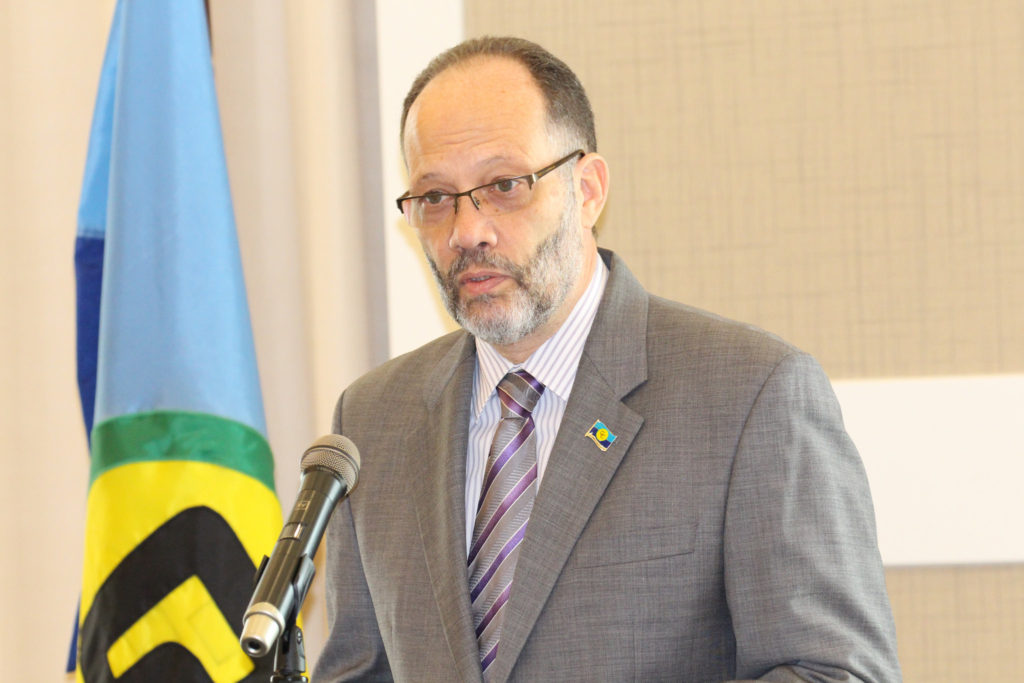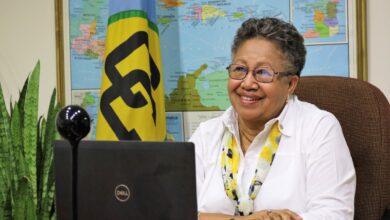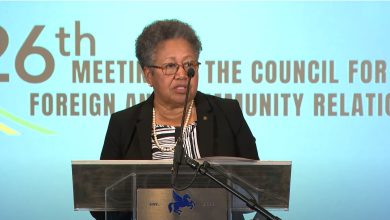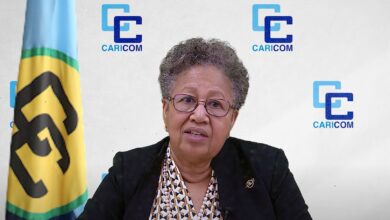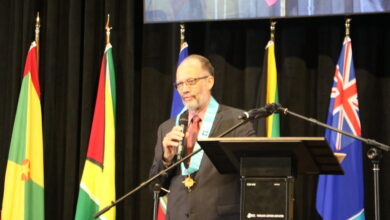OPENING REMARKS
BY THE
Secretary-general
of the
Caribbean community,
AMBASSADOR IRWIN LAROCQUE
at THE
HIGH LEVEL MEETING ON ENERGY FINANCING AMONG CARICOM MINISTERS RESPONSIBLE FOR ENERGY, HEADS OF INTERNATIONAL FINANCIAL INSTITUTIONS, BILATERAL DEVELOPMENT PARTNERS AND THE PRIVATE SECTOR
VIA VIDEOCONFERENCE
27 MAY 2021
- Your Excellency Luis Almagro, Secretary General of the OAS and Co-Host of this High-Level Meeting;
- Honourable Brigadier (Retd.) Mark Phillips, Prime Minister of the Cooperative Republic of Guyana;
- CARICOM Energy Ministers;
- Your Excellency Anthony Phillips–Spencer, Permanent Representative of Trinidad and Tobago to the OAS and Chair of the CARICOM Caucus of Ambassadors to the OAS;
- Permanent Representatives of the CARICOM Caucus of Ambassadors;
- Permanent Representatives and Permanent Observers to the OAS;
- Representatives from International Financial Institutions, Multilateral Development Banks, and International Development Agencies;
- Representatives from the Private Sector;
- Representatives of CARICOM Institutions;
- Ladies and Gentlemen.
We are here today out of a common commitment to build sustainable societies within our global community. The current environment of the COVID-19 pandemic has reminded us once again, of the interconnected, globalisedsociety in which we exist. The pandemic has rapidly become one of the most significant disruptive events in modern times.
Its adverse and lingering effects, both health wise and economic, are adding to the numerous challenges already faced by Small Island and low-lying coastal Developing States (SIDS).
In general, SIDS have a number of common structural constraints, including those arising from their small size, remote location, geographic dispersion, narrow asset bases, and greater exposure to the impact of climate change. These constraints make us particularly vulnerable to exogenous shocks.
The prevailing view is that Member States can ‘recover better’ from these exogenous shocks with the help of an accelerated clean energy transition. This would deliver long-term economic growth and job creation, in particular, whilst addressing our resilience and sustainable development needs in general.
For this to happen, the collective strengths of partners must be leveraged. A front-loaded and fast-tracked investment “surge” is urgently needed to achieve, within five to ten years, what may have otherwise taken thirty years because time is of the essence.
There is a clear need for secure energy supplies and resilient energy systems at costs that can be afforded by our citizens and businesses. Energy, for the Region, is an enabler for prosperity, rather than as an end in itself. Without sustainable access to secure, reliable and cost‑effective energy services that are suitably matched to the societal and development needs of our Community, our situations will remain, largely, unchanged.
Indicators based on nominal per capita income do not capture the financing needs of our Region.
The majority of our Member States lack the domestic capital, or even within CARICOM, to finance the investments that are necessary for the energy sector.
In its totality, the energy transition within CARICOM requires the mobilisation of around US$ 20 billion. This is on the basis of the ambitious regional targets for renewable electricity generation that were established by Energy Ministers in 2013.
Innovative partnerships are required for the models for financing and developing the quantity and quality of projects that will lead to energy security and resilience within the Region. In essence, a new type of “Marshall Plan” for the energy sector is needed.
The CARICOM Proposal, around which today’s dialogue is focused, is only a part of what is required and outlines an investment pipeline of around US$ 5 billion.
In the Proposal, Member States present projects that can support their ambitions to: exploit cost‑effective, indigenous renewable energy sources; improve their power grids; increase the application of distributed energy resources, including energy efficiency measures; and integrate electric vehicles into the transport systems. This requires a blend of public and private funds.
Our vision is for the Region to make the transition from a fossil fuel-based economy to one powered by clean energy systems. The transition should infuse the energy sector with systems that are able to survive, adapt and grow, enabling it to respond to whatever disruptions may occur.
It is absolutely necessary for our Region to raise public financing that can help to pay for the differential cost of resilience within our energy systems, without burdening rate‑payers. They are already paying some of the highest costs globally for electricity and fuels.
I look forward to your response to the details that are contained within the CARICOM Proposal presented for your consideration, and more so, to your expressions of interest on the initiatives, projects and actions that are contained within the technical assistance package and the investment portfolio.
I close by expressing gratitude to Secretary General Almagro, and his team, for standing shoulder to shoulder with our Community on this initiative. I express gratitude too, to the CARICOM Caucus of Ambassadors to the OAS, without whom the task of convening this gathering would have been far more difficult. Most importantly, I must express gratitude to the private sector and the International Financial Institutions for accepting our invitation to join us at this “virtual table”.
We look forward to exploring, with you, the practical options and realistic opportunities for investments and technical assistance that can build a more resilient and secure energy sector, with equality in access to quality energy services, within our Community.

